INSIDE ISSUE 18.45 | Nov. 8, 2019
BIG STORY: ‘Negative outcomes’ for kids linked to push for school safety
NEWS BRIEFS: Rural counties ranked last in child well-being; more
COMMENTARY, Brack: Time for S.C. to pass hate crimes protections
SPOTLIGHT: WREN
FEEDBACK: Send us your thoughts
MYSTERY PHOTO: There is probably a good story at this place
S.C. ENCYCLOPEDIA: Opera houses
‘Negative outcomes’ for kids linked to push for school safety
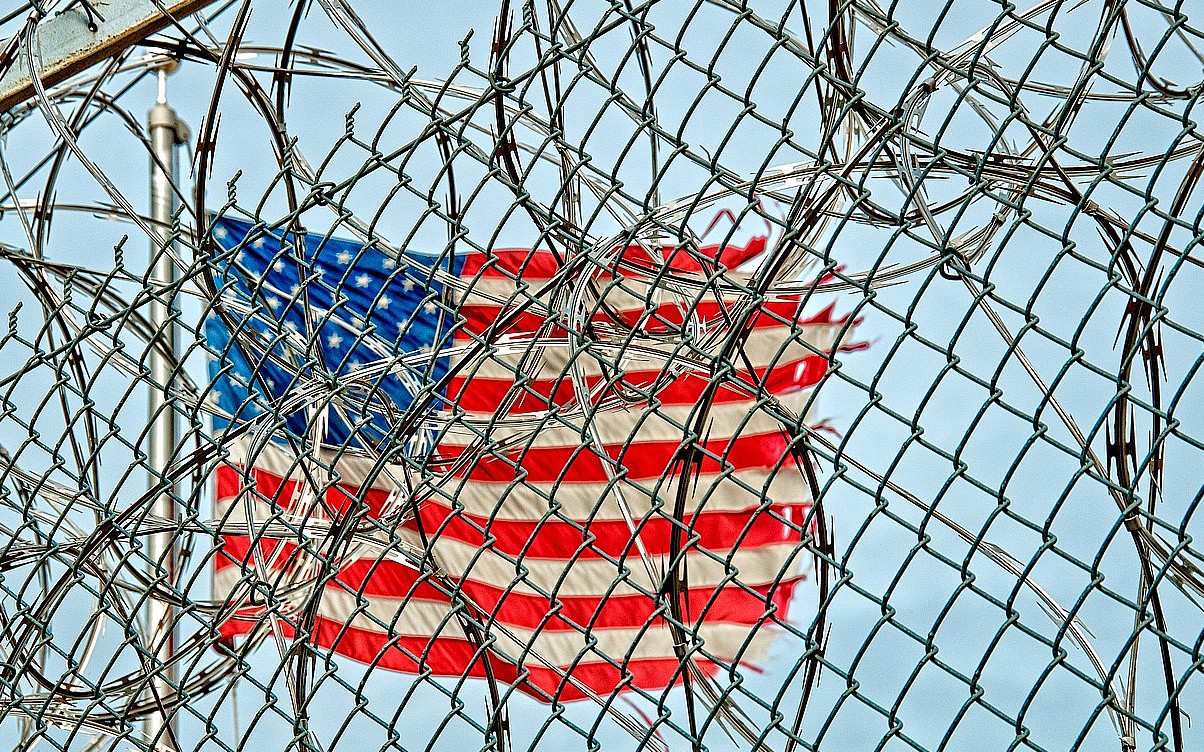
By Lindsay Street, Statehouse correspondent | More mental health care could come to public schools in 2020 as state lawmakers grapple with some of the unintended consequences of seeking to increase school safety, according to multiple senators working on juvenile justice changes.
Legislators are nearing their goal of placing a law enforcement officer in every school, but evidence has emerged that having an officer in the school may mean more children being charged with crimes — disrupting their education and potentially setting them up for failure, some say.
“As the number of school resource officers expands statewide, there is a real question of is that going to increase the number of children charged in incidents that could have been handled within the school system,” University of South Carolina School of Law professor Josh Gupta-Kagan said. “There’s a good amount of data that shows [we are now] referring kids to the juvenile justice system for something that a generation or two would not have been, is actually quite harmful.”
 Gupta-Kagan said referrals to S.C. Department of Juvenile Justice (DJJ) increases the likelihood of students dropping out of high school and other “negative outcomes.” It is a particular problem for minority children, who are more likely to face criminal charges, advocates said.
Gupta-Kagan said referrals to S.C. Department of Juvenile Justice (DJJ) increases the likelihood of students dropping out of high school and other “negative outcomes.” It is a particular problem for minority children, who are more likely to face criminal charges, advocates said.
According to the S.C. Department of Education, about two in three public schools in the state have a full-time police officer on campus. That number will likely continue to grow. In the 2019-2020 budget year for the first time, the state spent $11.8 million funding 205 officers at local school districts.
More officers, more crimes
According to S.C. Department of Juvenile Justice data presented during an Oct. 22 Senate select committee meeting, most referrals to the system happen during the school year. Likewise, national studies show the presence of a school resource officer (SRO) means children are more likely to receive criminal charges for behavioral or mental health issues that would otherwise be handled within the school.
Referrals to DJJ mean a solicitor has decided to involve the agency after a charge of criminal behavior. A child then goes to family court where he or she could receive a 45-day evaluation or commitment at DJJ, according to the agency.
Timing appears to be everything.
In South Carolina for 2017 and 2018, the lowest referrals to the juvenile justice system came from July, August and September — months where children are mostly out of school. Referrals range from 643 (August 2018) to 912 (September 2017), according to the DJJ data. But after the summer months, referrals spike with more than 1,000 each month. March 2018 alone saw 1,464 referrals.
Of the referrals to the department in 2018-2019, assault and battery 3rd degree was the most common, comprising 16 percent. That’s followed by public disorderly conduct and simple possession of marijuana, both at 7 percent.
“We know there is a direct correlation with increased arrests if you have a police officer on site,” S.C. Appleseed Legal Justice Center Equal Justice Works Fellow Lashawnda Woods-Roberts said, adding that the problem is more acute for non-white students.
Board members for the S.C. Association of School Resource Officers did not respond to an email seeking comment for this story.
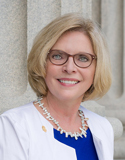
S.C. Sen. Katrina Shealy, R-Lexington, who is studying the issue, said she understands why teachers and administrators have turned toward law enforcement in an effort to keep classrooms orderly.
“We still need to have more SROs in schools because teachers don’t have any authority in classrooms,” she said.
S.C. Department of Education spokesman Ryan Brown released this statement on whether referrals to DJJ are more likely with an officer present at the school:
“The role of the school resource officer is to intervene when student conduct rises to a level of criminality and presents an immediate safety risk.”
‘Raise the Age’ meetings
Since June, while the legislature has been in recess, a bipartisan group of senators has probed curbing the criminalization of child behavior that stems from the lack of mental health care or lack of basic needs being met. The issue of more referrals during the school year has been raised in the committee, but isn’t their sole focus.
“That’s one of the things we’ve been talking about in the committee,” Shealy told Statehouse Report. “Once a kid goes to DJJ … you ruin the kid’s life.”
The Senate Select Committee on Raise the Age meets in response to the state raising the age of a child to 17-years-old, which began July 1.

Another member of the committee, Orangeburg Democratic Sen. Brad Hutto, said the committee is looking at a “voluminous” legislative package in 2020 that would look at how, why and where young people are detained. Hutto said the draft is expected to be unveiled during the next meeting, which will be 1 p.m. Nov. 19 in room 308 of the Gressette building on the Statehouse grounds in Columbia. Read the agenda.
“There are people that are being sent to DJJ for evaluations and commitments that could probably be handled more effectively and more cost efficiently (on the local level),” Hutto said.
More mental health spending
In addition to a large legislative package that would look at addressing misbehavior on a more local and targeted manner, senators are looking at investing more in mental health in 2020, Shealy said.
“South Carolina doesn’t invest enough in mental health. That’s going to change this year,” she said.
In the 2019-2020 state budget, the state invested $2.2 million in mental health in schools, nearly a sixth of what it spent on bringing officers into schools.
Woods-Roberts said on the local level, districts and law enforcement need to provide the best training for officers inside schools to deal with hungry children, children with unaddressed mental health issues, and children with unstable home lives. They need to deal with core problems, not shove them toward prison, she said.
“Without adequate training (for school resource officers), we are sending kids down the school-to-prison pipeline,” Woods-Roberts said.
Gupta-Kagan cited Richland County Sheriff’s Office for their work on training following the Spring Valley High incident where an officer grabbed a seated student and threw her to the floor in 2015. He said their training for SROs in de-escalation, recognizing childhood trauma and other training has discourages arrests. Richland County Chief Deputy Chris Callen did not respond to a request for comment for this story.
- Have a comment? Send to: feedback@statehousereport.com
NEWS BRIEFS
Rural counties ranked last in child well-being; more
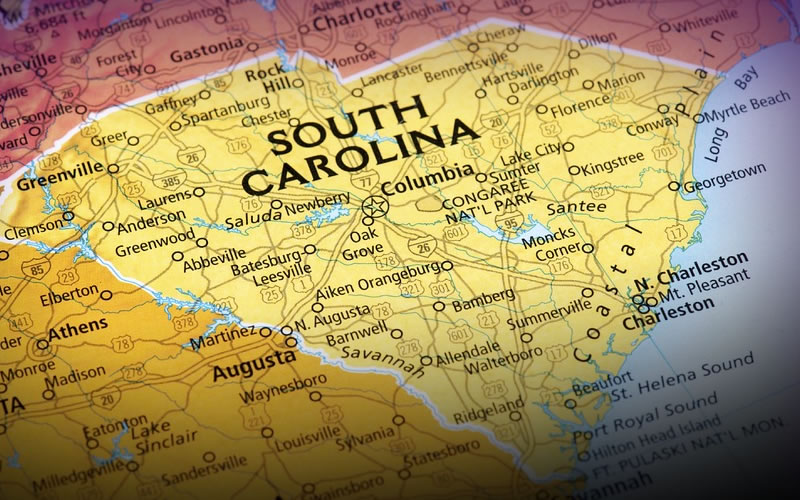
By Lindsay Street, Statehouse correspondent | The urban-rural divide remains stark in South Carolina, particularly when it comes to child well-being, according to numbers from the Children’s Trust of South Carolina.
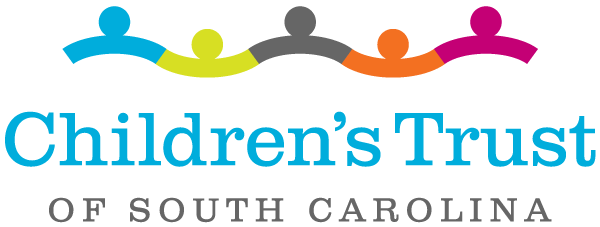 Using KIDS COUNT data from the Annie E. Casey Foundation, Children’s Trust on Thursday released the annual child well-being profiles for each county in South Carolina.
Using KIDS COUNT data from the Annie E. Casey Foundation, Children’s Trust on Thursday released the annual child well-being profiles for each county in South Carolina.
The profiles rank South Carolina’s 46 counties on 16 indicators of child well-being across four domains: economic well-being, education, health, and family and community.
The bottom 10 counties were: Marlboro, Orangeburg, Jasper, McCormick, Marion, Barnwell, Dillon, Lee, Williamsburg and Allendale, which ranked last.
York County ranked No. 1 overall in child well-being for the sixth consecutive year. Also in the top 10 were Dorchester, Greenville, Lexington, Beaufort, Pickens, Berkeley, Anderson, Richland and Spartanburg counties — all counties that have experienced growth and are near larger cities.
But some rural counties have made strides. The counties making the biggest leaps forward were Union, which improved by 17 spots to 21st; Clarendon, which climbed 10 places to No. 32; and Colleton, which jumped eight spots to No. 29. Calhoun and Hampton both improved seven places.
“However, as the profiles show, too many of South Carolina’s children live in environments that may put them at risk for negative outcomes, including child abuse and neglect. Rural counties with high poverty rates historically struggle in these rankings,” a statement from Children’s Trust stated.
Dr. Aditi Srivastav Bussells, Children’s Trust’s research and community impact manager, oversees the S.C. Adverse Childhood Experiences Initiative by managing data dissemination and providing leadership for the ACE training program.
She said the county data can help community leaders identify where additional support is needed to build well-being and resilience.
In other recent news:
![]() Few snags report for new machines. The state Election Commission touted its new paper-based voting system this week after its first real test in Tuesday’s municipal and local elections. In a statement, commission director Marci Andino called the election “successful” and credited a statewide effort to implement the new machines. League of Women Voters of South Carolina Vice President for Issues and Action Lynn Teague released this statement to Statehouse Report: “South Carolina is very fortunate to have had very small local elections for a first test of the new voting systems. We are told that in Richland County there was about 16 percent turnout. A few computers were not working and a few were not calibrated properly. In some cases there were not enough power cords or outlets. With an average of one voter every four minutes in each polling place, and an average of four to five ballot marking devices in each polling place, the problems were accommodated without significant inconvenience to voters. We hope that these issues will be resolved by the time of the first more serious test, the statewide primary, so that voters will not experience delays.” Teague has been among the critics of the new ballot system.
Few snags report for new machines. The state Election Commission touted its new paper-based voting system this week after its first real test in Tuesday’s municipal and local elections. In a statement, commission director Marci Andino called the election “successful” and credited a statewide effort to implement the new machines. League of Women Voters of South Carolina Vice President for Issues and Action Lynn Teague released this statement to Statehouse Report: “South Carolina is very fortunate to have had very small local elections for a first test of the new voting systems. We are told that in Richland County there was about 16 percent turnout. A few computers were not working and a few were not calibrated properly. In some cases there were not enough power cords or outlets. With an average of one voter every four minutes in each polling place, and an average of four to five ballot marking devices in each polling place, the problems were accommodated without significant inconvenience to voters. We hope that these issues will be resolved by the time of the first more serious test, the statewide primary, so that voters will not experience delays.” Teague has been among the critics of the new ballot system.
- Related: Last week, nonprofit online journalism group ProPublica released a report this week that looked at how ES&S cornered the electronic voting market — the vendor that supplies South Carolina’s new voting machines. The report says that there are security concerns and little competition among ballot-makers. Read it here.
- In Charleston County, no problems reported but some confusion among voters. Read it here.
State agency mulls increase to Medicaid reimbursements. A home health care company recently reached out to Statehouse Report and said the state has not raised Medicaid reimbursement rates for home health providers in more than a decade. That “means that nurses, who can make much more money in settings like hospitals, schools and doctor’s offices, are not able to take the home health jobs that so desperately need to be filled,” said nonprofit BAYADA Home Health Care. The company said it is one of the only home health care providers left in South Carolina, “due to low reimbursement rates and scarcity of change and industry improvement.” S.C. Department of Health and Human Services media liaison Colleen Mullis saidt in response: “As a result of (an agency) review, SCDHHS believes a rate increase for private duty nursing services is warranted and has proposed a rate increase in its annual budget request.”
S.C. unemployment tax rate to drop to 34 percent. Gov. Henry McMaster announced Thursday that businesses around the state can expect to pay 34 percent less in unemployment taxes in 2020 than in 2019. Read more.
S.C.’s infant mortality rate up sharply. An average 7.2 infants out of every 1,000 born died within 12 months in 2018, according to new data from the state. In 2017, the average rate was 6.5. The numbers haven’t been so high since 2012, when the state’s infant mortality rate was 7.6. The leading cause of infant death was congenital malformation and deformation, followed by disorders related to short gestation and low birth weight and accidents. See the report here.
Rape, incest exceptions put back in abortion ban bill. State senators are continuing to debate a bill that would ban most abortions in South Carolina. The measure already passed the House earlier this year. After a panel stripped the bill of rape and incest exceptions to banning all abortions after a fetal heartbeat is detected, the full Senate Medical Affairs Committee — led by Republican moderates — reinserted the language Tuesday. Read more.
Murder rate in S.C. is at a 5-year high. As the overall violent crime and property crime has decreased around the state, there have been more murders in the state last year than any year recently. Read the report from SLED.
Public input sought on Edisto River basin. South Carolina agencies are looking for public input on one of eight major river basins in the state with two stakeholder meetings: 6 p.m. to 8 p.m. Nov. 18 at Clemson University’s Edisto Research and Education Center in Blackville, and 6 p.m. to 8 p.m. at Lovely Hill Convention Center in St. George. The meetings are part of the state’s effort to draft a comprehensive and forward-looking State Water Plan. Learn more.
Conservative groups weigh in on vaping debate. Two conservative think tanks have claimed that two initiatives aimed at curbing adolescent smoking could undermine small businesses: flavor bans and raising the age of nicotine use to 21. Americans for Tax Reform said vaping flavor bans would “devastate Main Street,” and Competitive Enterprise Institute said raising the tobacco purchase age to 21 “has little basis in fact” for curbing youth use. Both regulations have been floated in South Carolina as lawmakers look to keep teens off nicotine.
Full Senate Education Committee to meet on education overhaul. The full Senate Education Committee will look at whether to recommend its panel-revised version of the House-passed education overhaul bill. The meeting is 1 p.m. Nov. 13 in room 308 of the Gressette building on the Statehouse grounds in Columbia. See the agenda here.
Checks are in the mail. Fifty dollar reimbursement checks cut from surplus money in state coffers are being sent this week to about 400,000 homes in South Carolina, according to a press release from the state Department of Revenue. More than 1.2 million households qualify for the rebate, and the checks will be sent in waves, with most receiving checks before Dec. 2. Read the full release.
2020 candidate calendar
 Throughout the campaign season, we are working to keep South Carolina informed of candidate events in the state. Have an event you want us to know about? Email us at 2020news@statehousereport.com.
Throughout the campaign season, we are working to keep South Carolina informed of candidate events in the state. Have an event you want us to know about? Email us at 2020news@statehousereport.com.
Booker returns to S.C. today. New Jersey Democratic Sen. Cory Booker will attend a presidential forum with College of Charleston at 1 p.m. Nov. 8 (learn more), and a forum with The Post and Courier 3 p.m. Nov. 8 (learn more). Other events scheduled:
- 7:30 p.m. Nov. 8 at National Black Legislative Caucus Environmental Justice Forum at S.C. State University in Orangeburg; and,
- 10 a.m. Nov. 9 at a Charleston office opening at 4112 Dorchester Rd., North Charleston. RSVP.
Williamson to talk environmental justice in Orangeburg. Democratic presidential hopeful Marianne Williamson will attend the 2019 Presidential Forum on Environmental Justice at S.C. State University 6-9 p.m. Nov. 8.
Steyer makes stop today. Democratic candidate Tom Steyer will speak 3:45 p.m. Nov. 8 at the 2020 National Water for Humanity Environmental Justice Rally at the Theodore Chaplin Jr. Arena in Denmark. After, he will attend the 2019 Presidential Forum on Environmental Justice at S.C. State University 6 p.m. to 9 p.m. Nov. 8.
Warren makes S.C. stops Nov. 8-9. Massachusetts Democratic Sen. Elizabeth Warren will attend the 2019 Presidential Forum on Environmental Justice at S.C. State University 7 p.m. Nov. 8. She will also make two stops on Nov. 9:
- A Great Education for Every Child Forum 11:30 a.m. at Scott’s Branch Middle/High School in Summerton; and,
- A town hall 4:15 a.m. at Goose Creek High School in Goose Creek. RSVP.
Harris talks justice Nov. 11. California Democratic Sen. Kamala Harris will hold several conversations in South Carolina regarding veterans issues:
- “Justice for Veterans” conversation 12:45 p.m. Nov. 11 at American Legion Post 224 in Greenwood. RSVP;
- Justice is on the Ballot Town Hall 5:10 p.m. Nov. 11 at Phillis Wheatley Community Center in Greenville. RSVP.
- Have a comment? Send to: feedback@statehousereport.com
BRACK: Time for S.C. to pass hate crimes protections
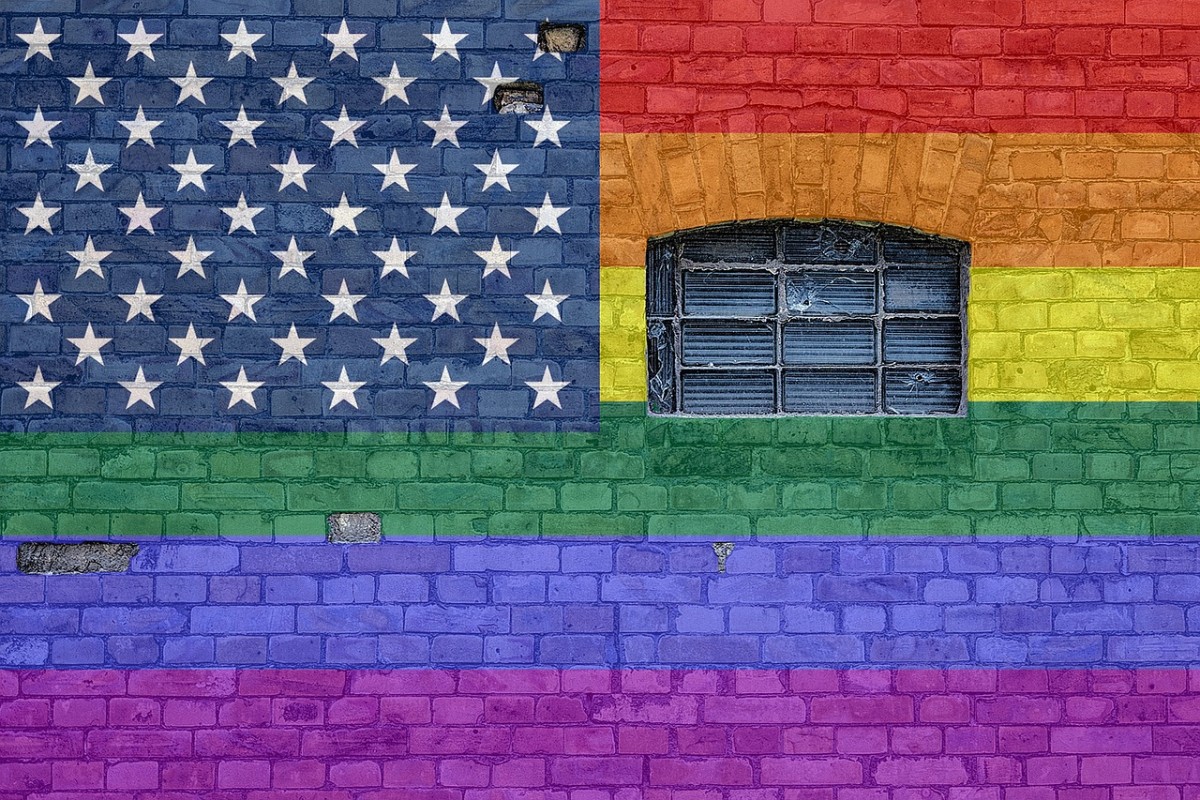
By Andy Brack, editor and publisher | South Carolina is just one of four states without a law that punishes people who violently lash out against others or property because of hate. Rep. Beth Bernstein, D-Columbia, is working to build a coalition of lawmakers to change the status quo — and soon.
 “Tragic events like the Mother Emanuel church shooting [in Charleston] and the Pittsburgh synagogue shooting highlight the need for hate crimes legislation in our state,” she told Statehouse Report. “Those incidents represent some of the most heinous crimes, and they were committed based solely on who the victim is as a person.”
“Tragic events like the Mother Emanuel church shooting [in Charleston] and the Pittsburgh synagogue shooting highlight the need for hate crimes legislation in our state,” she told Statehouse Report. “Those incidents represent some of the most heinous crimes, and they were committed based solely on who the victim is as a person.”
In 2017, more than 2,000 law enforcement agencies around the country reported 7,175 incidents of hate crimes involving 8,437 offenses, according to FBI data. Incidents included 15 murders and 23 rapes motivated by hate against someone’s race, religion, gender or something else. More than 1,000 incidents reported were because of someone’s sexual orientation.
The bureau says investigating hate crimes is one if its highest priorities because of the “devastating impact” they have on families and communities. But it emphasizes hating isn’t a crime. And thanks to the First Amendment, hate speech is protected. But when hate blends with criminal action, things change.
“A hate crime,” the bureau explains, “is a traditional offense like murder, arson, or vandalism with an added element of bias” against someone or their property when motivated by bias due to the color of someone’s skin or their religion, sexual orientation, gender or gender identity.
While there’s a federal law on hate crimes, having a state law would give more authority to local law enforcement officials to investigate alleged hate crimes.

“As a lawmaker, I feel it is incumbent on me to find ways to protect our citizens against these types of crimes,” Bernstein said. “We need to have laws that protect us all from hate-motivated violence, and as the only Jewish member of the General Assembly, this issue is very personal for me.
“Hate crimes take a tremendous physical and emotional toll on the victim and the victim’s community at large, and by remaining silent on this issue, it will ultimately damage the fabric of our society and fragment our communities. Hate crimes legislation should be a priority this session.”
Bernstein says she will pre-file a two-page bill later this month that will emulate a Wisconsin law found to be constitutional. Rather than trying to get a separate hate crimes bill passed — a proposal which hasn’t found success in the past two decades in South Carolina — Bernstein said she would focus on increasing penalties for crimes already on the books if hate is a factor in the offenses.
“This legislation would enhance the penalty for crimes in which a criminal defendant was ‘motivated by’ or had ‘prejudice based on’ the actual or perceived membership of their victim in certain categories,” she said. Under the proposal, anyone convicted of a violent crime with bias would face a “special verdict” of up to an additional five years in jail. And victims could get civil damages up to $25,000 per incident.
Efforts by Bernstein and like-minded lawmakers should have support from SC Equality and its coalition, both of which work to advance human and civil rights of LGBT South Carolinians.
“We’re having conversations one by one with legislators to show with verifiable fact that discrimination exists, it is rampant, and it is a problem that the South Carolina General Assembly must resolve,” said Charleston’s Jeff Ayers, the organizations’ executive director. “I understand the challenges with passing a hate crime bill in Columbia next year. However, I feel strongly that if we use a grassroots approach, we can successfully put pressure on legislators to move a bill forward. And one that includes sexual orientation and gender identity.”
Ayers understands some lawmakers’ religious convictions may be an obstacle to progress.
“As Christians, respecting one’s neighbor and showing compassion for all are fundamentals of the faith. Being respectful of each other, regardless of age, race or sexual identity, does not have to be a religious issue. It simply has to be a human issue. And Christians should be on the front row cheering for love and humility to all.”
Amen.
Andy Brack’s latest book, “We Can Do Better, South Carolina,” is now available in paperback and for Kindle via Amazon.
- Have a comment? Send to: feedback@statehousereport.com.
WREN
 The Women’s Rights and Empowerment Network (WREN) is a South Carolina-based nonpartisan network created to build a movement to advance the health, economic well-being, and rights of South Carolina’s women, girls, and their families. WREN provides a strong, collective voice for South Carolina’s women and girls.
The Women’s Rights and Empowerment Network (WREN) is a South Carolina-based nonpartisan network created to build a movement to advance the health, economic well-being, and rights of South Carolina’s women, girls, and their families. WREN provides a strong, collective voice for South Carolina’s women and girls.
With its partners and members:
WREN advocates at the Statehouse for policies and laws that will improve the status of women.
WREN educates the public on issues that affect women and girls and seeks to inspire action.
WREN empowers people and strengthens organizations to support women and young people.
WREN builds coalitions of people and organizations committed to improving opportunities in South Carolina.
WREN convenes diverse voices, collects and disseminates research, and shares information about practical solutions to promote gender equality and improve our state’s health and economic vitality.
- To learn more, visit WREN online at: http://www.scwren.org
- Have a comment? Send to: feedback@statehousereport.com
Send us your thoughts … or rants
We love hearing from our readers and encourage you to share your opinions. But you’ve got to provide us with contact information so we can verify your letters. Letters to the editor are published weekly. We reserve the right to edit for length and clarity. Comments are limited to 250 words or less. Please include your name and contact information.
- Send your letters or comments to: feedback@statehousereport.com
There’s probably a good story here
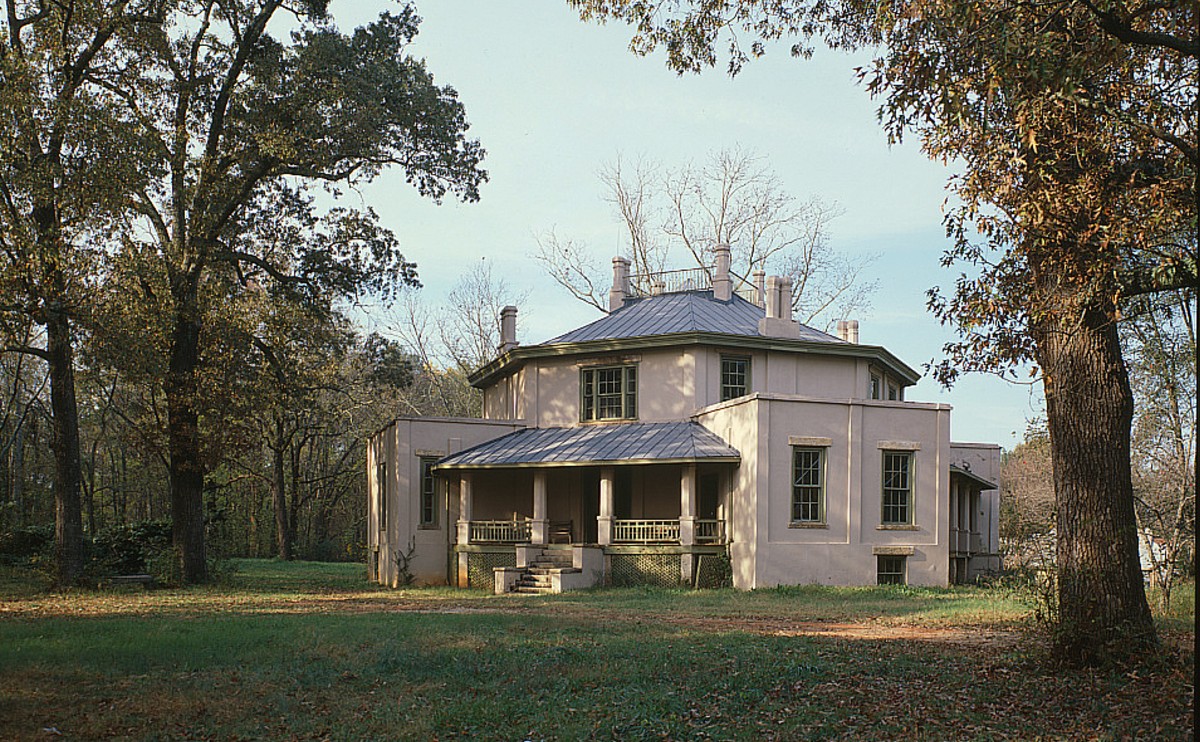
My, my. This looks like a South Carolina place with an interesting story. Share where you think it is by sending a guess to feedback@statehousereport.com. And don’t forget to include your name and the town in which you live.
Our previous Mystery Photo
 Our Nov. 1 image, “Looks like some kind of sports complex,” was, in fact, a sports complex. The one pictured is in North Augusta where the SRP Park is home to the Augusta GreenJackets minor league baseball team.
Our Nov. 1 image, “Looks like some kind of sports complex,” was, in fact, a sports complex. The one pictured is in North Augusta where the SRP Park is home to the Augusta GreenJackets minor league baseball team.
Congratulations to Steve Willis of Lancaster; Arlene Traxler of Edgefield; Dale Rhodes of Richmond, Va.; Jay Altman, Tom Posey and Julia Beaty, both of Columbia, Randy Herald of Lexington; Jacie Godfrey of Florence; Philip Cromer of Beaufort; Will Williams of Aiken; Bill Segars of Hartsville; and Vic Carpenter of Lugoff.
Traxler said the park opened in April 2018. “In addition to baseball, they have many events during the year. It is a beautiful location with accommodations, good food and a view of the beautiful river.”
Graf added, “It can seat 4,782 people. SRP Park replaced Lake Olmstead Stadium as the home of the GreenJackets. Stadium naming rights were purchased by the SRP Federal Credit Union.”
- Send us a mystery: If you have a photo that you believe will stump readers, send it along (but make sure to tell us what it is because it may stump us too!) Send to: feedback@statehousereport.com and mark it as a photo submission. Thanks.
S.C. ENCYCLOPEDIA
Opera houses
S.C. Encyclopedia | In the period between 1880 and 1920, opera houses flourished in communities across South Carolina. Beginning in the 1880s, as the state recovered from the Civil War, opera houses provided live entertainment for citizens who were able to afford leisure activities. By 1915 there were opera houses in Columbia, Sumter, Greenville, Florence, Newberry, Darlington, Laurens, Marion, Abbeville, and Bishopville, among other communities.
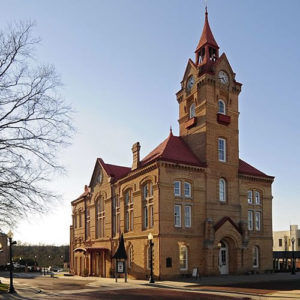
Especially in the larger towns, opera houses were imposing, architecturally distinctive buildings with elaborate interiors. Newberry’s three-story brick opera house, featuring a bell tower, was constructed in 1882. Sumter’s 1893 opera house was a three-story, Richardson Romanesque stone structure with a one-hundred–foot clock tower. Columbia’s second opera house, built in 1900, was three stories with two towers. It had a large stage, concealed overhead machinery for curtains and scenery, an orchestra pit, spectator boxes, and two galleries. In smaller communities, opera houses were more modest and often located on the second floor of multi-purpose buildings. For example, the opera house in Laurens was situated above the city hall, and Marion’s opera house was on the second floor of a building that housed the courtroom, jail, and fire department on the first floor.
“Road shows” that traveled the country provided dramatic productions, musical comedies, operas, minstrel shows, and other live entertainment. Columbia’s opera house booked Broadway hits and stars such as Sarah Bernhardt, Ethel Barrymore, Lillian Russell, and Nat Goodwin. Even in a smaller community such as Abbeville, special trains brought theater patrons from nearby towns to see traveling shows such as the Klansman, Yankee Drummer, the Ziegfeld Follies, or an escape artist. The Marion Opera House featured traveling theatrical companies as well as local talent.
By the 1930s the new sound movies had eclipsed live entertainment, and some of the opera houses converted to motion picture theaters. By 1941 South Carolina: A Guide to the Palmetto State reported, “Most of the old opera houses in the State have now been pre-empted for movie theatres.” In the decades after 1930 most of the opera houses in the state were demolished. A few survived, however, and in the last decades of the twentieth century several of them were restored, including the Abbeville Opera House, the Sumter Opera House, the Marion Opera House, and the Newberry Opera House.
— Excerpted from an entry by Mary W. Edmonds. This entry may not have been updated since 2006. To read more about this or 2,000 other entries about South Carolina, check out The South Carolina Encyclopedia, published in 2006 by USC Press. (Information used by permission.)
ABOUT STATEHOUSE REPORT
Statehouse Report, founded in 2001 as a weekly legislative forecast that informs readers about what is going to happen in South Carolina politics and policy, is provided to you at no charge every Friday.
Meet our team
- Editor and publisher: Andy Brack, 843.670.3996
- Statehouse correspondent: Lindsay Street
Buy the book
 Now you can get a copy of editor and publisher Andy Brack’s We Can Do Better, South Carolina! ($14.99) as a paperback or as a Kindle book ($7.99). . The book of essays offers incisive commentaries by editor and publisher Andy Brack on the American South, the common good, vexing problems for the Palmetto State and interesting South Carolina leaders.
Now you can get a copy of editor and publisher Andy Brack’s We Can Do Better, South Carolina! ($14.99) as a paperback or as a Kindle book ($7.99). . The book of essays offers incisive commentaries by editor and publisher Andy Brack on the American South, the common good, vexing problems for the Palmetto State and interesting South Carolina leaders.
More
-
- Mailing address: Send inquiries by mail to: 1316 Rutledge Ave., Charleston, SC 29403
- Subscriptions are free: Click to subscribe.
- We hope you’ll keep receiving the great news and information from Statehouse Report, but if you need to unsubscribe, go to the bottom of the weekly email issue and follow the instructions.
- © 2019, Statehouse Report, a publication of City Paper Publishing, LLC. All rights reserved.
- Read our sister publications: Charleston City Paper (every Wednesday) | Charleston Currents (every Monday)
















